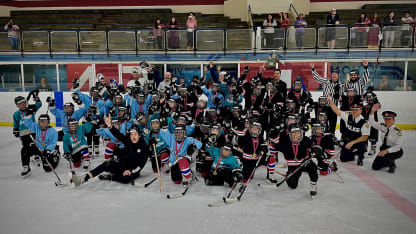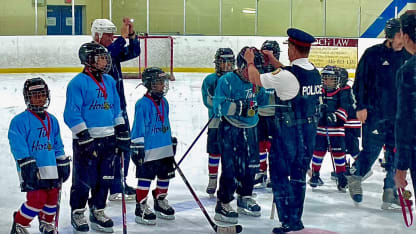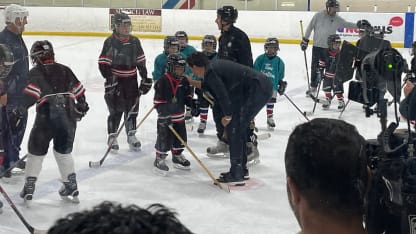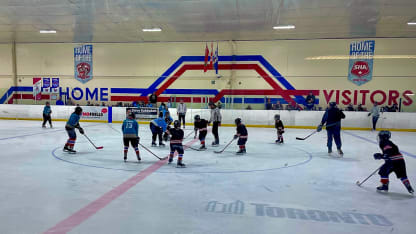"Now my youngest daughter who is eight is asking me, 'Mom, do you think one day I'm going to play for Team Canada?', and she's asking why the camp is ending and why they can't keep it for longer," Sheikh said. "She's watching Toronto Maple Leafs videos now and I'm telling her, 'You're just beginning.' And she's telling me, 'Mom, no, I need to see what they do and how to do it the best'."



